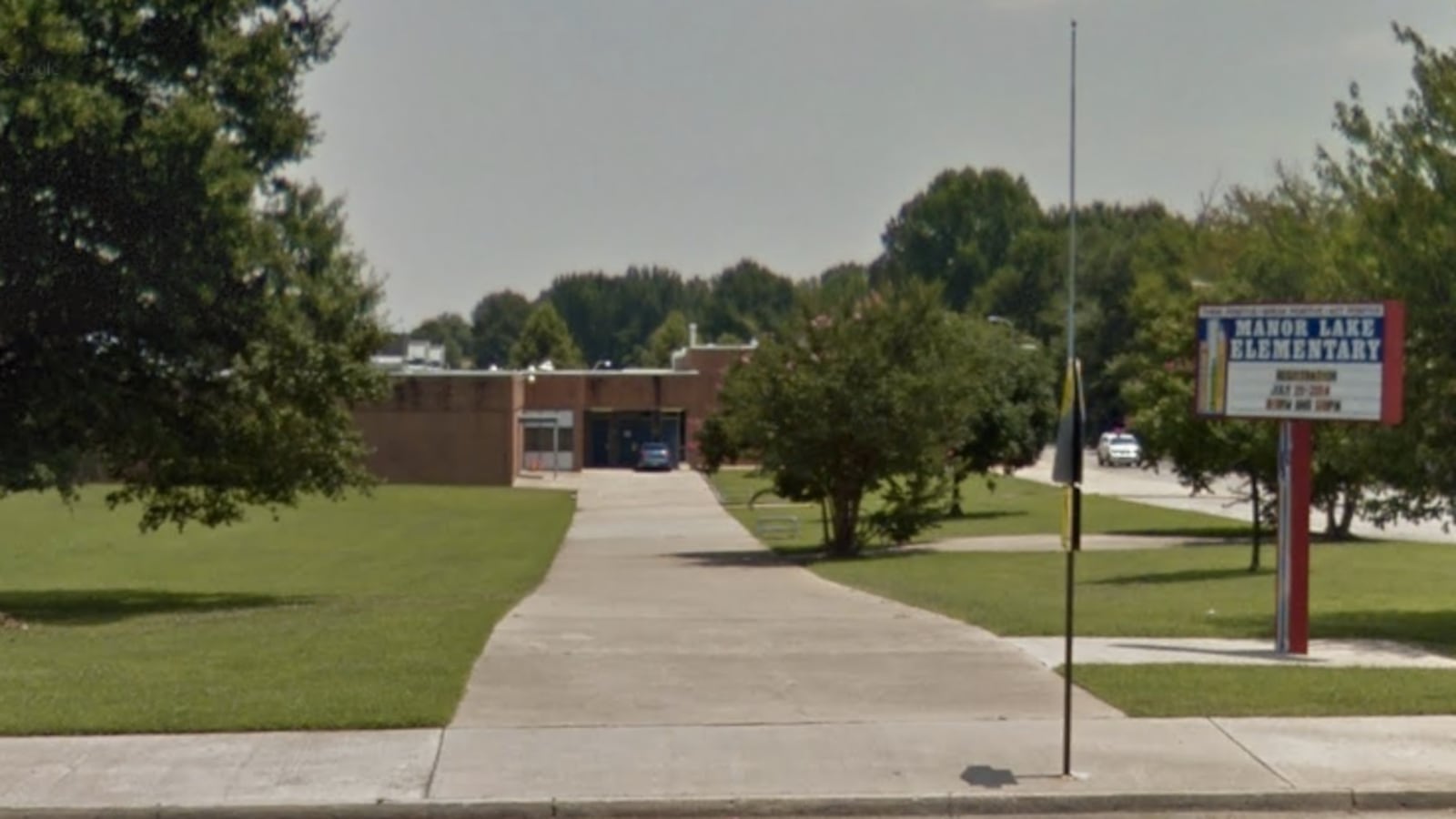It isn’t every day that parent leaders press their school district to close a local school.
But that’s exactly what has happened in Memphis’ Whitehaven neighborhood over the last several months, as a group of parent leaders have reckoned with the challenges facing Manor Lake Elementary School.
Beverly Davis, whose child attends Whitehaven High School, first floated the idea of shutting Manor Lake and sending its 359 students to a nearby middle school next year, after staring down data showing low test scores, low enrollment, and high costs for building maintenance.
The leadership council she helps lead for a cluster of Whitehaven schools — made up of about 30 parents, teachers, students, and community members — liked the idea.
And this week, Shelby County Schools Superintendent Dorsey Hopson turned their idea into a proposal: This fall, Manor Lake should fold into Geeter Middle School, creating a new K-8 school that would be part of the district’s Whitehaven Empowerment Zone. If the proposal is approved, the new school would join four others in a group led by Whitehaven High School Principal Vincent Hunter and the leadership council.
The saga is surprising because decisions to close schools often meet fierce resistance from communities. Two common reasons for the pushback: Parents feel left out of the conversation until the last minute, and community members fear that their school will no longer be connected to the neighborhood.
The Whitehaven story escapes both of those pitfalls. Parents have long been involved in the Empowerment Zone, and the zone’s leadership is deeply rooted in the community. (Feedback from the wider community is coming soon.)
“In order for the model to work we need to keep it as a Whitehaven model,” Davis told Chalkbeat. “Under Dr. Hunter the Whitehaven model is parents, parents, and more parents. And that’s where these other schools come short. You let parents have a voice, you let parents come to the table.”
Whitehaven’s empowerment zone is unique within Shelby County Schools, where efforts to improve struggling schools have centered on a different model, the district’s Innovation Zone. In that model, schools get more resources, new leaders and teachers, and a longer school day — but district officials alone call the shots.
Under the empowerment zone, the district shares management with a leadership council that includes 11 teachers, nine parents, six community members, and four students in Whitehaven. The council meets monthly to talk about how schools are doing and how to address challenges school staff and students are facing.
The council has had both Geeter and Manor Lake — located just a half-mile apart — on their radar for months, after the district decided that both should enter the empowerment zone next year.
Geeter is coming from the Innovation Zone, where it was in the first cohort of schools to join and would be the first to exit. After five years in the Innovation Zone, the school’s performance on state tests has barely improved, and it remains solidly in the lowest-performing 5 percent of schools in the state. Last year, less than 10 percent of students posted test scores suggesting that they are on grade level in math or language arts.
After appearing on the state’s first “priority” list in 2012 because of its low test scores, Manor Lake Elementary actually escaped the state’s most recent warning list of the lowest-scoring 10 percent of schools. Yet less than 15 percent of students were considered proficient in language arts on state tests last year.
Both schools have far fewer students than they are designed to serve. On Tuesday, Hopson said the two schools are each at less than 60 percent capacity.
And Manor Lake is especially expensive to operate. As of summer 2016, Manor Lake Elementary had more than $2.5 million in maintenance costs for the building.
Eddie Jones, the chair of the Empowerment Zone leadership council who is also a county commissioner for the area, said merging the two schools is not only financially prudent, but will result in a better environment for the neighborhood’s students.
“Now you free up resources to put in that building to adequately educate our kids,” he said. “By combining those schools … you have everything in one building.”
The school board is expected to make an initial vote on the proposal next week, kicking off community meetings before a final vote. One such meeting is scheduled for 5:30 p.m. Wednesday, Feb. 28 at Whitehaven High School.

